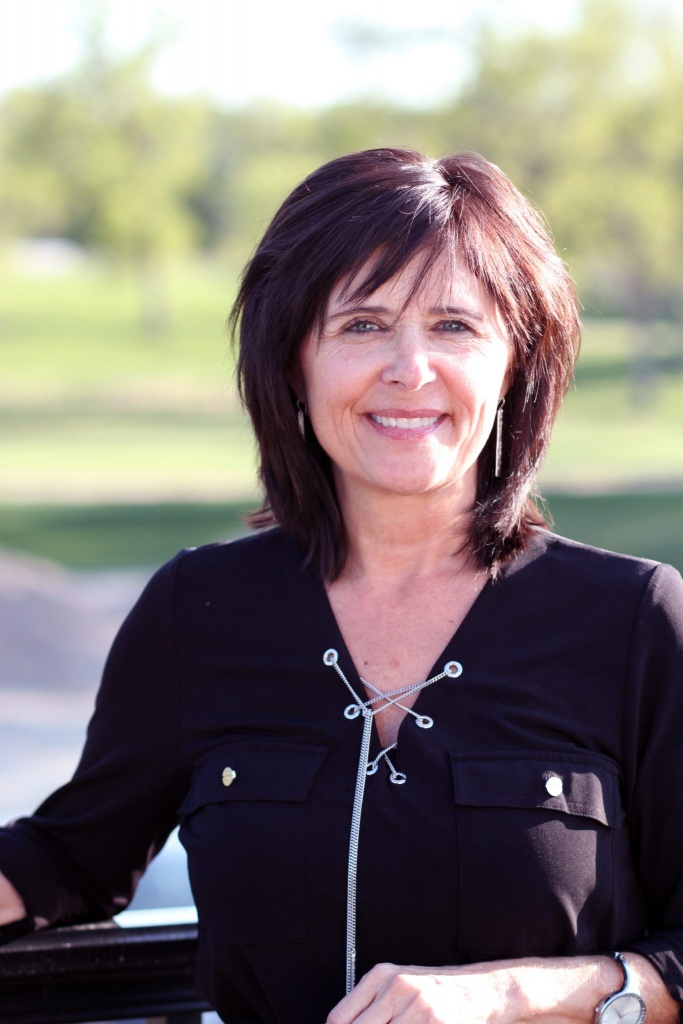
Terry Eckmann
by Nicole Thom-Arens | Submitted Photos
Throughout most of her life, Terry Eckmann, professor of kinesiology and chair of the teacher education and kinesiology department at Minot State University, has made a career for herself in the fitness industry.
“It was in the early 1980s. Jane Fonda was wearing her leg warmers and headbands and started getting us all moving around and doing aerobics, which is what group exercise was called at that time,” Terry recalls.
Her interest in group exercise grew, and she began getting certifications to teach.
“When I was teaching aerobics around the community what I saw was that the majority of people coming to exercise classes were people that were under the age of 50, and yet, we had this population—really a large percentage of our population—that was over the age of 50, but they didn’t grow up in the era where you put on a leotard and you went to group exercise class,” says Terry.
LISTENING TO HER HEART
While in graduate school for her master’s in physical education, Terry proposed a project to engage older adults, which she then defined as 55 and older, in group fitness. As she is now part of that group, Terry jokes that older adults are 85 and older—just to clarify.
“I was told by everybody in the community that there was no way that these older adults were going to come to these classes,” Terry recalls.
But with minimal advertising, a hundred people called to volunteer for the study.
“From that, I started the Trinity Wellness Center at Trinity Hospital, and I worked there and helped them start the cardiac rehab program over 30 years ago,” Terry notes.
BOOSTING THE BRAIN
Today, Terry works with 18-, 19-, and 20-year-olds at Minot State. She’s earned her Ph.D in educational leadership, received several awards and honors in the industry, and speaks at conferences around the world. While attending a conference on the brain and learning, Terry was introduced to concepts that would shift her career once more.
“I was expecting to learn different ways—different strategies—to get 19- and 20-year-olds excited about learning, and what I heard were neuroscientists talk about the importance of exercise and cognition—lifestyle choices and aging well—so I started to do some research with university students,” says Terry.

Terry and Katie Eckmann jumping for joy in Thailand where Terry presented at the Asia Fitness Conference
The research her team conducted found adults between ages 65 and 91 significantly improved their cognition over 12 weeks doing either Zumba or yoga two times a week. This research led to her first book, “101 Brain Boosters.”
“A lot of people in their 20s, 30s, and 40s say, ‘Oh, I want to buy this book for my mom.’ We start aging at birth, so, really, it’s the things that we (should all) do,” says Terry.
Her second book, “101 Ways to Age Gracefully,” discusses lifestyle choices, gratitude, and the importance of positive thinking.
Terry’s third book—”101 Mindfulness and Meditation Practices”—is a project she’s working on with her daughter, Katie, who has been a part of Terry’s fitness journey all her life.
“It talks about different concepts of mindfulness,” says Katie, a nationally certified yoga instructor. “And then we explain what these concepts are and what we’ve learned through our yoga trainings and through reading.”
“We’re all in hyperactive-mode—going, going, going all the time,” Terry explains. “Phones have kind of taken over our worlds as well. We’re always checking our text messages, we’re doing the social media thing, so we’ve become more and more and more distracted.”
MINDFULNESS
As a 21-year-old college student, Katie knows how unhealthy mindless scrolling can be.
“I’ve noticed it’s a huge distraction for me,” says Katie. “If I’m doing homework, or if I’m working on writing, or doing something that I need to get done, if I just get stuck with something or I need a break, I’ll go on social media, and I tell myself, ‘I’ll just check a few things or get rid of notifications,’ and then I end up scrolling for a half hour, and then I’m frustrated with myself.”
The two hope readers will use their new book as a type of journal to practice living in the now.
“Most of us live in what happened, or what we have to do, or what’s going to happen next,” says Terry. “The practice of mindfulness trains our brains to do what we are doing right now and enjoy that moment because, really, that’s all we’ve got.”
 Nicole Thom-Arens is a writer and an assistant professor of communication arts at Minot State University where she teaches journalism and com- munication theory courses and advises the student newspaper the Red & Green.
Nicole Thom-Arens is a writer and an assistant professor of communication arts at Minot State University where she teaches journalism and com- munication theory courses and advises the student newspaper the Red & Green.
